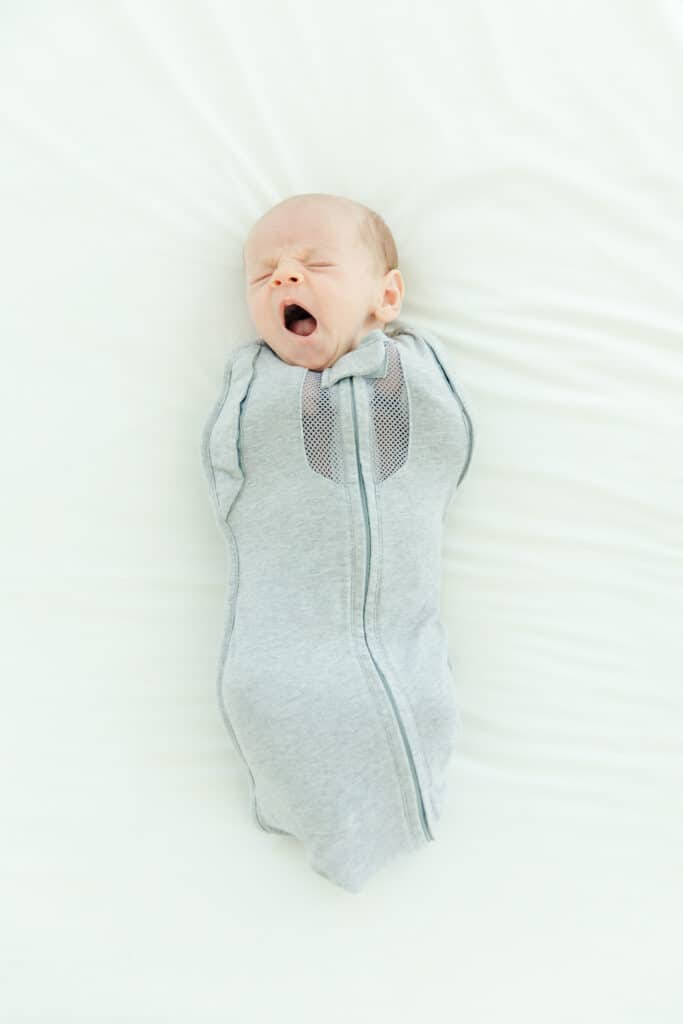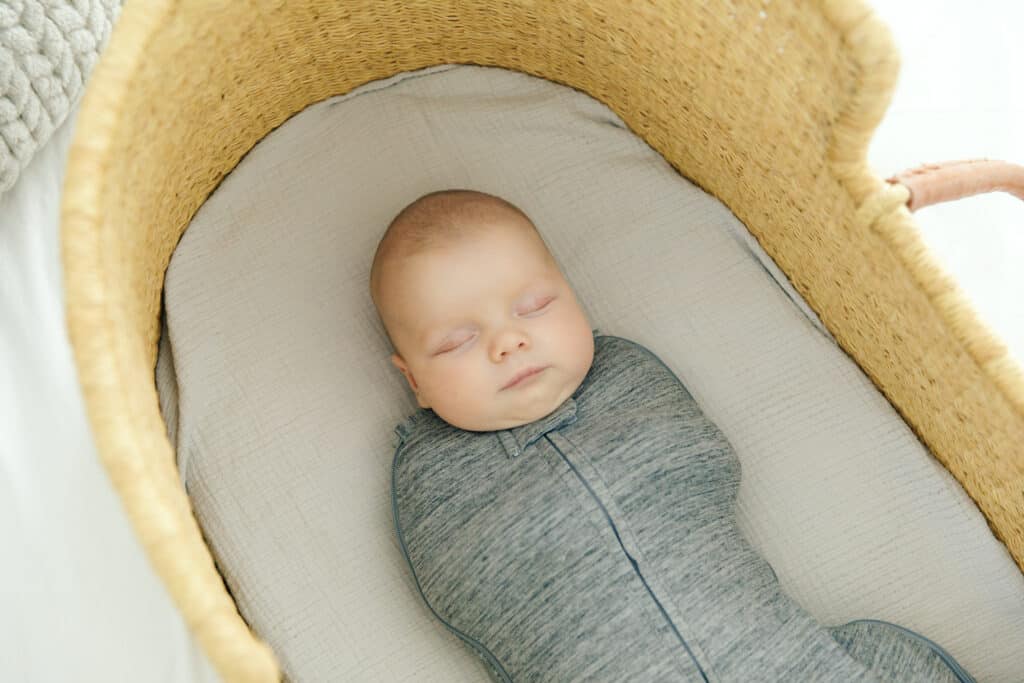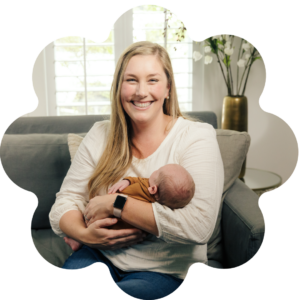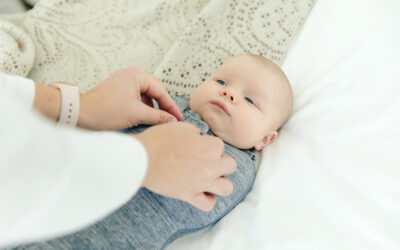
Finally, your baby has drifted off to sleep. You place them in their crib and tiptoe your way out. Thirty minutes later you’re halfway through dinner, and your little one is once again awake and crying.
False starts can be frustrating, especially when it is happening consistently. Luckily, there are a few things you can do to lessen the number of false starts your baby has.
What Are False Starts?
A false start is when your baby wakes up around 30 minutes to an hour after being put in their crib for their nighttime sleep.
They are fully awake and seem to be done with sleeping.
Don’t worry, mama, this is usually just a phase that your little one is going through, and most babies grow out of this and sleep soundly through the night by the age of one.
What Causes False Starts In Babies?
False starts are often developmental and a response to suboptimal sleeping conditions.
Many babies under four months old have not yet developed self-soothing skills. They may wake up often throughout the night to be comforted. False starts are not the same as your baby waking up due to hunger. As your baby grows you can reduce nighttime feedings.
Discomfort – from illness, teething, or overtiredness – can also be the reason for your baby not settling and sleeping in their crib.
As babies grow and develop, they typically learn to sleep for longer stretches and to self-soothe, making false starts a thing of the past.
4 Ways To Reduce False Starts
Adjust Their Bedtime
If your baby has a false start, seems wide awake, and wants to engage and play, you may need to adjust their sleep-wake cycle. Wake them up a bit earlier from their last daytime nap, have their wake window, then put them down for their nighttime sleep a bit later.
But, if your baby is showing signs of being overtired – fussiness, lack of appetite, clinginess – you may need to do the opposite. Shorten their wake window and make their bedtime earlier.
Start small when shifting your baby’s bedtime – around 10 to 15 minutes at a time – then increase this until the false starts cease.
Establish A Consistent Bedtime Routine
Yes, your baby is ready for a routine (you can start a routine as early as two weeks old)! A bedtime routine relaxes your little one, signals that it’s time for bed, and reduces false starts. Plus, a bedtime routine can actually help your baby sleep better throughout the whole night.
Here are a few effective activities to add to your baby’s bedtime routine:
Bath
The warm water can be soothing for babies. Just make sure this is before the last daytime feed. A bath right before bed can be too stimulating.
Lotion Massage
A massage with lotion is a great sleep association. Your baby will associate the smell and sensation with sleep.

Their Last Feed With Cuddles
Don’t underestimate the soothing effect that cuddling your baby has. A good snuggle can help calm and soothe your baby.
“A nightcap fills your baby’s tank before the night ahead. If he has any teeth, brush them (and wipe his gums) when you’re done,” says What To Expect.
Get my free recommended routine for babies two to six weeks here – it will help facilitate longer bedtime sleep!
Create An Optimal Sleep Environment
Is your nursery set up for your baby to easily go to and stay asleep throughout the night?
Keep the nursery at a comfortable temperature (add a fan to keep the room cool and create white noise). Also, reduce stimulating lights and noises, such as from TVs and the road outside. What your baby wears to bed also has an impact on false starts. We recommend putting your baby in a sleep sack as it helps maintain the correct body temperature and can mimic the calming womb environment.
Put Your Baby In Their Crib When They’re Drowsy, Not Asleep
By putting your baby down while they are drowsy, they may be more likely to drift off to sleep reducing the number of false starts.
This is because your baby can learn how to self-soothe and fall asleep by themselves. When putting them down fully asleep, they’re more likely to have a false start and then struggle to go back to sleep.
Extra Tip For Better Overall Nighttime Sleep: Size Up Their Diaper
During their bedtime routine, try putting your baby in the next size-up diaper. This will help avoid nighttime wakings due to wet diapers. The larger diaper will allow for more moisture to be soaked up, keeping your baby dry.
Don’t worry, mama, the false starts aren’t here to stay! Your baby’s sleep patterns will shift as they grow and experience developmental milestones. Try our tips for sleep training your little one and encourage longer better nighttime sleep.




